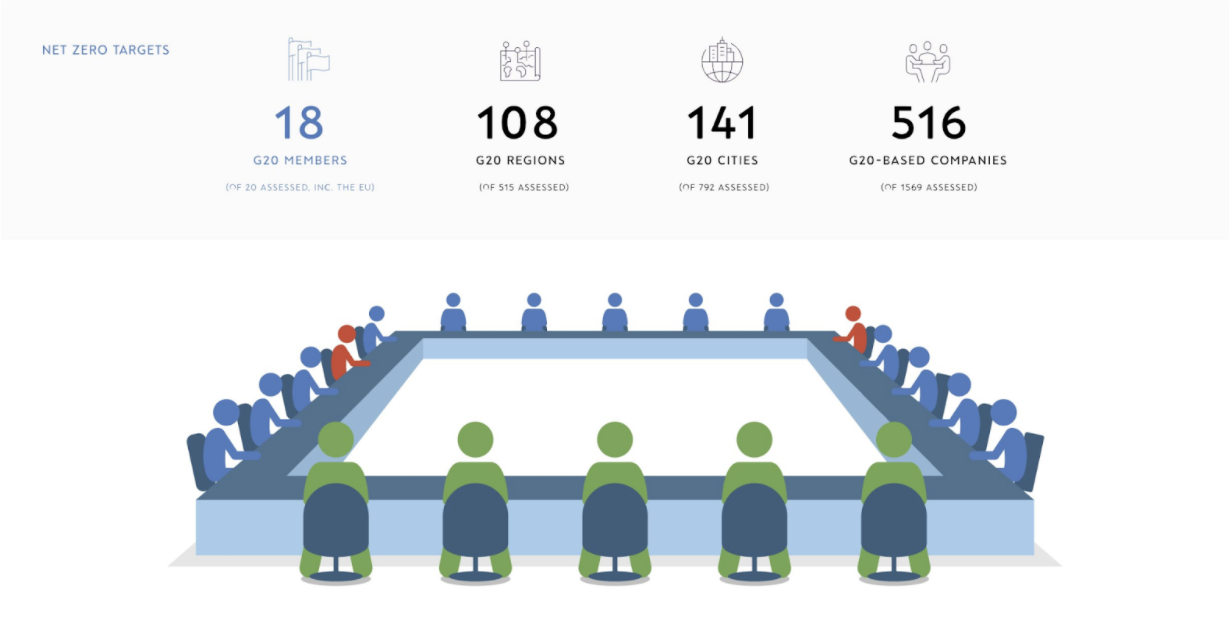Today marks the launch of the Net Zero Tracker (NZT), a collaborative project by The Energy & Climate Intelligence Unit (ECIU), NewClimate Institute, Oxford Net Zero, and us, the Data-Driven EnviroLab. The tracker is an independent, rigorous, powerful tool that aims to address the lack of information around net zero standards and track the quantity and quality of net zero targets.
Today more than ever, countries, cities, regions, and companies are increasingly making net-zero pledges and commitments. These commitments are coming thick and fast, causing the landscape of net-zero actors to change every day. To complicate the matter, not all net zero commitments are equal, as there are currently no concrete or widely-accepted standards for net zero pledges. This has prompted concerns within the climate community over the quality and robustness of the net zero plans adopted so far.
In an effort to achieve climate accountability and bring a new level of radical transparency to net zero targets, the Net Zero Tracker (NZT) provides up-to-date analysis of over 4,000 actors’ pledges, including governments, cities, regions, and corporations. And for the first time, this information is being stored in a user-friendly and open-source database and dashboard.
The NZT is designed to enable state actors, businesses, campaigners, academics, and the public to benchmark the quantity and quality of net zero targets in order to track progress towards the global goal of limiting warming to 1.5°C. And by hosting this data in one open database, we can scrutinize and compare net-zero plans from across the globe, while tracking which plans are strong and which plans could be improved.
In our analysis of G20 countries, regions, cities and companies, we found major target setting momentum across G20 governments, where twice as many countries now have net zero targets in law compared to last year. Companies headquartered in the G20 have seen similar momentum, with one in three of the largest listed companies in G20 countries now having net zero targets, up from 1 in 5 last year. Quality commitments that meet robustness criteria have also doubled since 2020.
While momentum is strong, there are still many gaps in net zero commitments. Large city and regional net zero commitments in the G20 have doubled since 2020, but 83% of G20 regions and 69% of cities still lack a net zero target of any kind. And while over 80% of global GDP and 77% of global greenhouse gases are covered by a national net zero target (up from 68% and 61% last year), just 10% of global GDP and 5% of global emissions are covered when only considering countries with strong commitments and clear plans to reach net zero by mid-century.

The NZT is a highly collaborative effort, and the Data-Driven Envirolab is working to push forward analytical capacities for net-zero tracking. We’re developing and testing automated content scraping and target information processing to achieve near-real-time tracking of net zero commitments and information, as companies, regions, cities, and countries release new net zero plans or update their old ones.
To learn more about the NZT and to explore the tool, visit our website at https://www.zerotracker.net/.

Trackbacks/Pingbacks